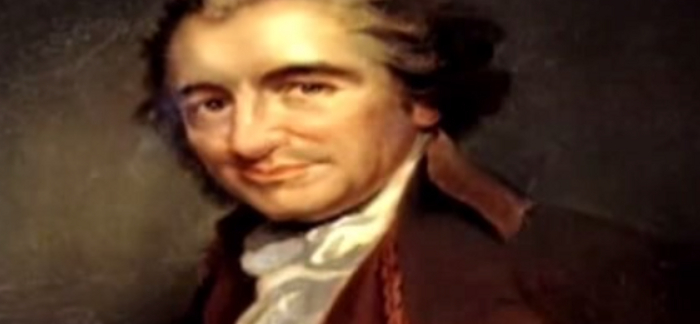Thomas Paine is the one Founding Father of the United States that most people don’t know about. He was a straight-forward thinker who put his thoughts down on paper. His most notable work was called Common Sense and it helped to create a push that eventually led to independence for the US colonies. More than 120,000 copies of Common Sense were eventually printed.
1. Early Against Slavery.
Many of the Founding Fathers either owned slaves or supported the practice, but Paine wasn’t one of them. He published one of the earliest essays against slavery in American in 1775. Called African Slavery in America, it is a must-read for anyone studying the history of the United States. George Washington, who at first loved Paine’s views, eventually stopped supporting him because of his thoughts on slavery.
2. A French Founding Father.
Paine served in the American government as Foreign Affairs Secretary in 1777. He eventually moved to England, was declared a radical, and forced to leave in 1792. At that point he became a French citizen and was elected to the National Assembly. He even helped to write the Constitution for the Republic of France.
3. A Franklin Friend.
Paine struck up a great friendship with Benjamin Franklin until after he had moved to London from Norfolk to work. Paine had just published an essay on the rights of men and Franklin suggested that Americans might be more in tune with his thinking. Paine took him up on the offer, took a 6 week trip to Philadelphia that nearly killed him, and had a lifelong friend.
4. Almost Put to Death.
While in France, Paine argued against the execution of Louis XVI. Because of this, many of the French who regarded him as a hero started calling for his own death. He would have been executed if the jailer hadn’t marked the execution symbol on the wrong side of the door. Eventually he’d be let out of prison just 11 months later and Paine would make his way back to the United States.
Thomas Paine was an integral part of two key revolutions that shaped modern world history. Despite this fact, just 6 people attended his funeral in 1809. Such an influential man deserves his rightful place in history.




